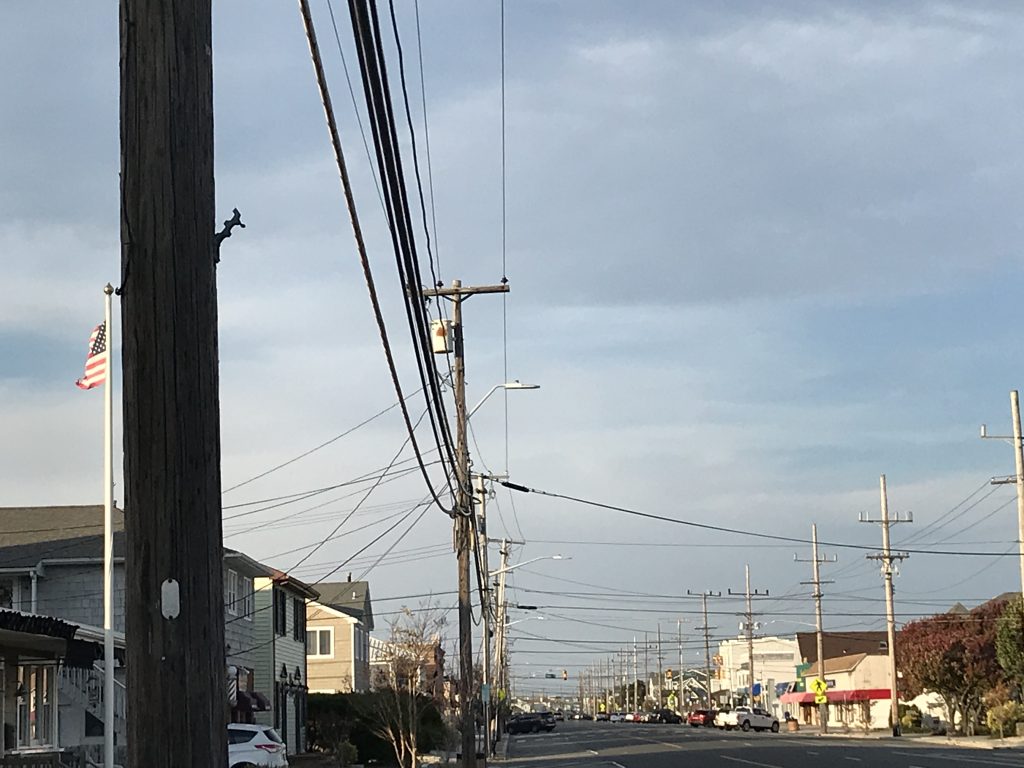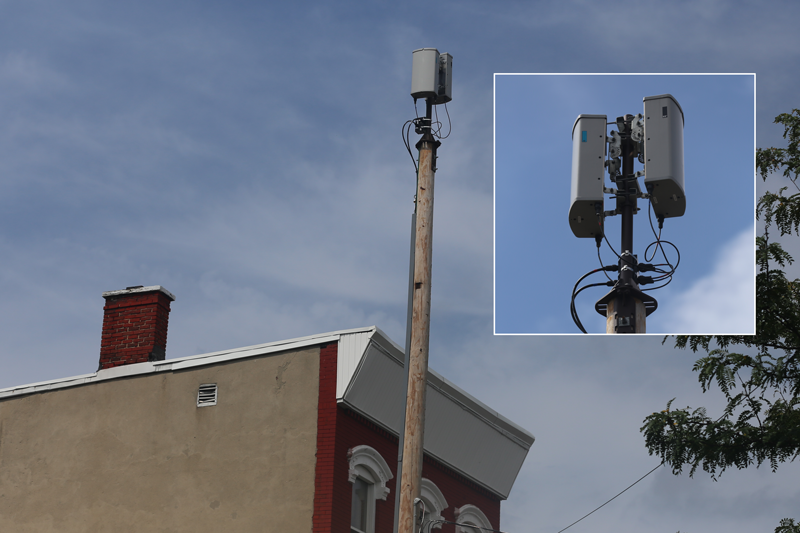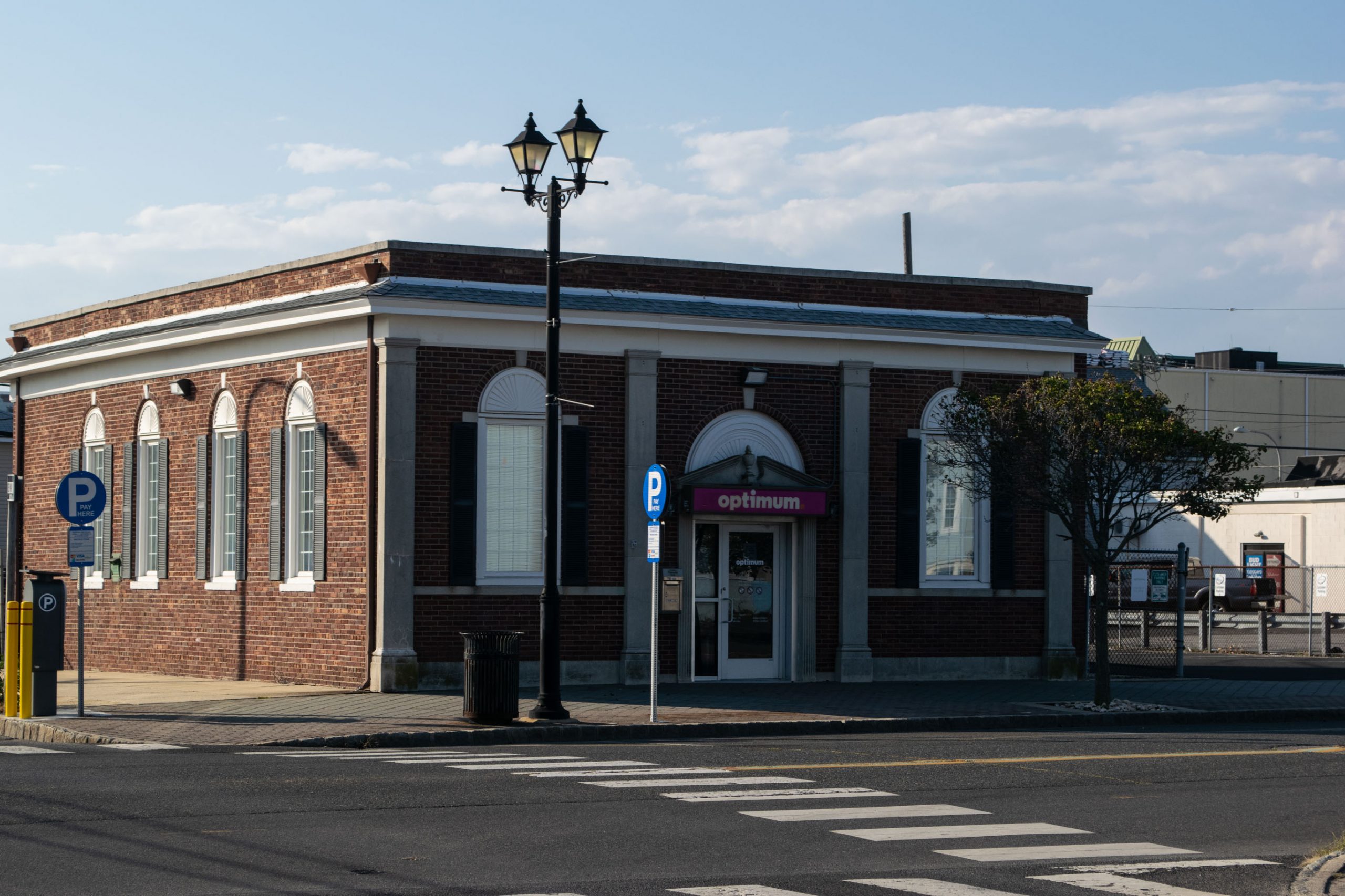Lavallette’s call for Verizon to install its FiOS television and high-speed internet service in the borough will not be coming to fruition, but the company has promised the island community will be one of the first to be wired – or, rather, not wired – for its 5G system that will replace fiber optic connections to homes.
Lavallette officials have long been after Verizon to install its FiOS service in town since residents often voice complaints about Altice, the only cable television and internet provider in town, which offers is Optimum services in the borough. Because of a state agreement hatched years ago, Verizon is required to install service in each county seat in New Jersey. Since Lavallette is surrounded by Toms River, the Ocean County seat, its lines literally run through the town but have never been extended down residential streets. Borough officials made their latest appeal the company over the last month but were told the company is now focusing on newer technology.
“It’s kind of agreed upon that FiOS is old technology,” said Borough Administrator Robert Brice. “We’re looking at 5G being the next wave to basically bring a mesh network to bring your cell phone, home phone and cable all in one.”
The aforementioned 5G technology will represent a major shift in America’s data delivery networks. Instead of cellular transponders installed on tall towers, the fifth-generation technology will be installed in “nodes” at the street level. The shear speed of the data that will flow through the nodes will allow video, voice and internet access to be provided on a wireless basis. Verizon has already given a presentation to Lavallette officials, with representatives saying the island community has been targeted because of the heavy load imposed upon its current 4G wireless system during the busy summer months.
“We’re at the cusp of that new technology and they’re scouting the town out for new infrastructure,” Brice said.
Lavallette is one of the few municipalities in New Jersey that owns its own electrical delivery system, meaning it owns most of the utility poles in town. Borough officials will likely have to accept the 5G infrastructure being installed on the poles regardless of how it is implemented, though they say they are working with Verizon to ensure the nodes are aesthetically pleasing. It is widely assumed that Verizon’s competitors, including AT&T and T-Mobile, among others, will also be interested in installing competitive 5G networks in town that will compete with their fellow wireless providers as well as traditional cable providers.
“Every cell phone carrier wants to put their own nodes in,” said Mayor Walter LaCicero. “We’re not happy about the optics of it. It looks like they’re going to win in court, but we’ll see what we have to do.”
Verizon detailed its plan to offer wireless video in an interview with business television network CNBC last summer. According to the CNBC report:
Verizon said … that instead of giving you a bunch of cable boxes and other gadgets, it’s going to simply give you an Apple TV 4K and a wireless modem. Since Verizon isn’t going to run a standard cable line to your house, it’s also going to include a subscription to YouTube TV, YouTube’s streaming service that will provide access to TV channels. YouTube TV normally costs $40 per month, but Verizon’s deal is likely only a limited-time offer.
The new system would require only a wireless modem in residents’ homes. The standalone device would power wireless calling (and interface with landline phones), provide video service as well as connect to high speed internet.

Advertisement

Police, Fire & Courts
Police Investigating Possible Shots Fired in Seaside Heights

Police, Fire & Courts
Cops: Juvenile Arrested After 118mph Joy Ride in Seaside Heights, Toms River Kills 2

Seaside Heights & Seaside Park
Seaside Heights Mourns Passing of Boardwalk Legend, Still Working Into His 90s










